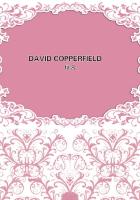It is evident from these pleadings that assigns were not mentioned in the covenant, and so it has always been taken. It also appears that the plaintiff was trying to stand on two grounds; first, privity, as descendant and assign of the covenantee; second, that the service was attached to the manor by covenant or by prescription, and that he could maintain covenant as tenant of the manor, from whichever source the duty arose.
Finchden, J.puts the case of parceners ****** partition, and one covenanting with the other to acquit of suit.A purchaser has the advantage of the covenant.Belknap, for the defendants, agrees, but distinguishes.In that case the acquittance falls on the land, and not on the person. (That is to say, such obligations follow the analogy of easements, and, as the burden falls on the quasi servient estate, the benefit goes with the dominant land to assigns, whether mentioned or not, and they are not considered from the point of view of contract at all.
Warranty, on the other hand, is a contract pure and ******, and lies in the blood,--falls on the person, not on the land. )Finchden: a fortiori in this case; for there the action was maintained because the plaintiff was tenant of the land from which the suit was due, and here he is tenant of the manor where the chapel is.
Wichingham, J.: If the king grants warren to another who is tenant of the manor, he shall have warren, &c.; but the warren will not pass by the grant , because the warren is not appendant to the manor.No more does it seem the services are here appendant to the manor.
Thorpe, C.J., to Belknap: "There are some covenants on which no one shall have an action, but the party to the covenant, or his heir, and some covenants have inheritance in the land, so that whoever has the land by alienation, or in other manner, shall have action of covenant; and when you say he is not heir, he is privy of blood, and may be heir: and also he is tenant of the land, and it is a thing which is annexed to the chapel, which is in the manor, and so annexed to the manor, and so he has said that the services have been rendered for all time whereof there is memory, whence it is right this action should be maintained." Belknap denied that the plaintiff counted on such a prescription; but Thorpe said he did, and we bear record of it, and the case was adjourned. It will be seen that the discussion followed the lines marked out by the pleading.One judge thought that the plaintiff was entitled to recover as tenant of the manor.The other puisne doubted, but agreed that the case must be discussed on the analogy of easements.The Chief Justice, after suggesting the possibility of sufficient privity on the ground that the plaintiff was privy in blood and might be heir, turns to the other argument as more promising, and evidently founds his opinion upon it. It would almost seem that he considered a prescriptive right enough to support the action, and it is pretty clear that he thought that a disseisor would have had the same rights as the plaintiff.
In the reign of Henry IV., another case arose upon a covenant very like the last.But this time the facts were reversed.The plaintiff counted as heir, but did not allege that he was tenant of the manor.The defendant, not denying the plaintiff's descent, pleaded in substance that he was not tenant of the manor in his own right.The question raised by the pleadings, therefore, was whether the heir of the covenantee could sue without being tenant of the manor.If the covenant was to be approached from the side of contract, the heir was party to it as representing the covenantee.If, on the other hand, it was treated as amounting to the grant of a service like an easement, it would naturally go with the manor if made to the lord of the manor.It seems to have been thought that such a covenant might go either way, according as it was made to the tenant of the manor or to a stranger.
Markham, one of the judges, says: "In a writ of covenant one must be privy to the covenant if he would have a writ of covenant or aid by the covenant.But, peradventure, if the covenant had been made with the lord of the manor, who had inheritance in the manor, ou issint come determination poit estre fait, it would be otherwise," which was admitted. It was assumed that the covenant was not so made as to attach to the manor, and the court, observing that the service was rather spiritual than temporal, were inclined to think that the heir could sue. The defendant accordingly over and set up a release.It will be seen how fully this agrees with the former case.
The distinction taken by Markham is stated very clearly in a reported by Lord Coke.In the argument of Chudleigh's Case the line is drawn thus: "Always, the warranty as to voucher requires privity of estate to which it was annexed," (i.e.succession to the original covenantee,) "and the same law of a use....But of things annexed to land, it is otherwise, as of commons, advowsons, and the like appendants or appurtenances....So a disseisor, abator, intruder, or the lord by escheat, &c., shall have them as things annexed to the land.So note a diversity between a use or warranty, and the like things annexed to the estate of the land in privity, and commons, advowsons, and other hereditaments annexed to the possession of the land." And this, it seems to me, is the nearest approach which has ever been made to the truth.
Coke, in his Commentary on Littleton (385 a), takes a distinction between a warranty, which binds the party to yield lands in recompense, and a covenant annexed to the land, which is to yield but damages.If Lord Coke had meant to distinguish between warranties and all covenants which in our loose modern sense are said to run with the land, this statement would be less satisfactory than the preceding.















